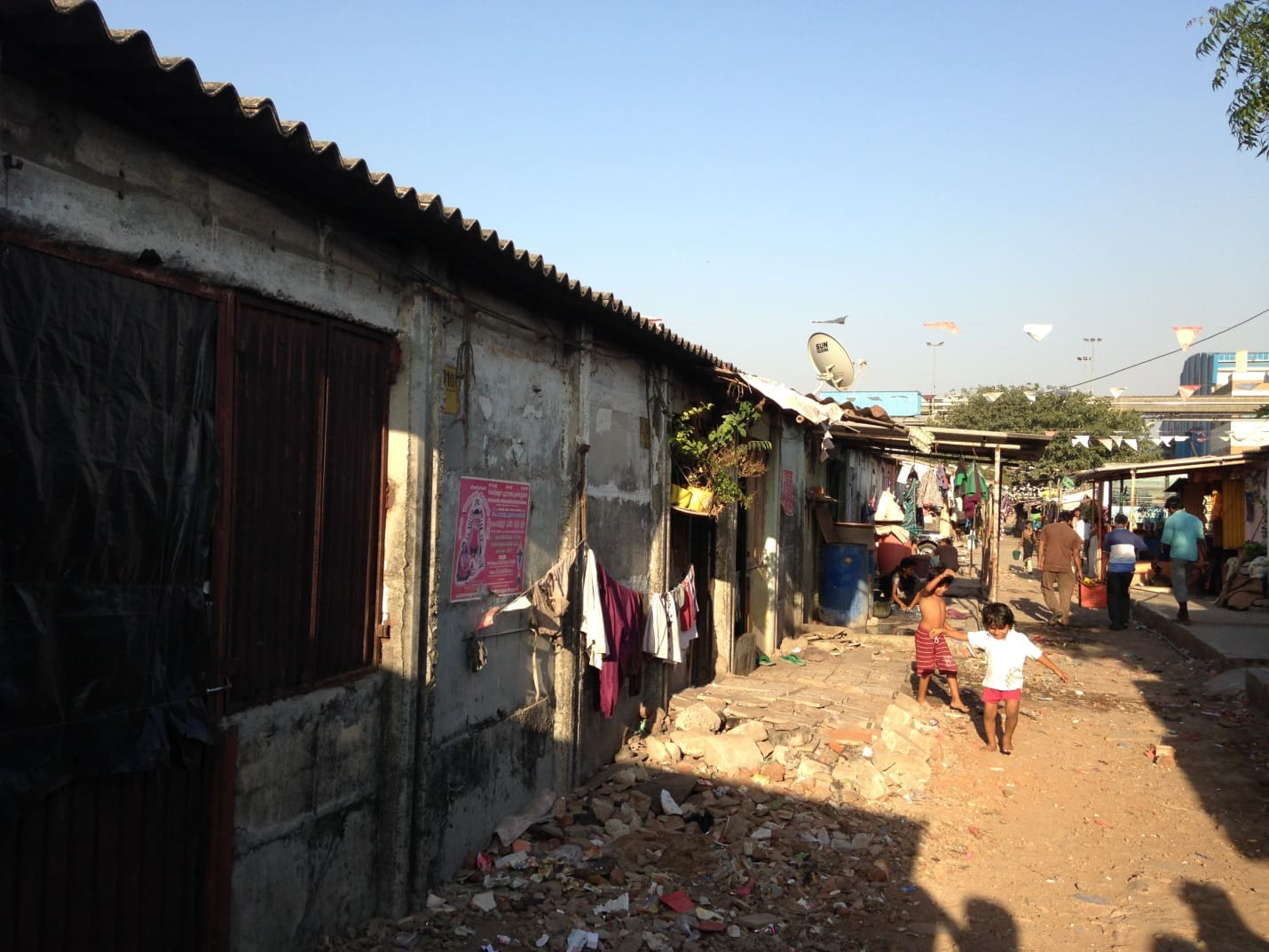Meenakshi lives in the Yerwada area in Pune, India with her husband, 3 children, and father-in-law. She works at a tailoring shop, and her husband drives a taxi. In recent years, Meenakshi has upgraded her home with amenities such as a 30 inch TV with a satellite connection and a refrigerator. Her children go to a private school nearby.
Despite these modern amenities, Meenakshi and her family have been living in informal housing—dwellings that are either not in compliance with regulations or are illegal—for the past 15 years, and they face fundamental challenges because of this housing situation. Even after 15 years, they do not have documents to stake a legal claim on their house. The first few years were particularly stressful, with frequent threats of evictions from the municipal authorities. Her 120 square feet house can now barely accommodate her growing family. Getting water is a daily battle with neighbors as water in the community tap nearby is available only for 2 hours per day and lines are long. Monsoons are a particularly difficult time for the family—the house often gets flooded during the rains due to lack of proper drainage in the area.
More than 14 million families in urban India live in conditions similar to Meenakshi’s. With the increase in rural-urban migration, combined with persistent shortage of affordable formal housing, informal housing has become a distinctive feature of most major Indian cities and town. As part of FSG’s report, Informal Housing, Inadequate Property Rights, we conducted in-depth research in 4 cities (Pune, Hyderabad, Delhi, and Cuttack) to better understand the different types of informal housing in India and the needs of these households living in informal housing by applying a property rights lens.
Our research focuses on the values that are most important to informal housing residents. Fifty-seven percent of residents sampled had some fear of eviction from their current household, despite having lived there for many years. We expected that getting formal property rights for their house would be a priority given this insecurity. However, when asked to state their top needs, majority of residents prioritized basic services—such as toilets, water, and drainage—over formal property rights. The critical need that emerged in our research was not only one of access, but also of improvement in quality of these basic services. Like Meenakshi, many residents we interviewed had access to clean drinking water from a community tap nearby, but they often had to wait in queue for water that was released only for a few hours and often at odd hours.
While residents expressed that solutions to improve basic services that impact day-to-day lives are more important than formal property rights, informal housing dwellers with more formal property rights tend to have better quality of services. Without formal property rights, which includes the right to basic services, access and quality of services and infrastructure in informal housing varies depending on the welfare policies of the State and local politics.
This raises an important question about how the public and non-profit sector might invest resources to improve the lives of people living in informal housing. Are resources better spent on targeted efforts such as increasing the number of water taps, or on more fundamental approaches like providing residents with formal property rights?
We explore this question in FSG’s new report, Informal Housing, Inadequate Property Rights, by diving into the nuanced reality of informal housing in India today. Download the report to see the findings from interviews with more than 500 informal housing dwellers and ideas for improving their living conditions.
Learn more about FSG’s Inclusive Markets Programs >

